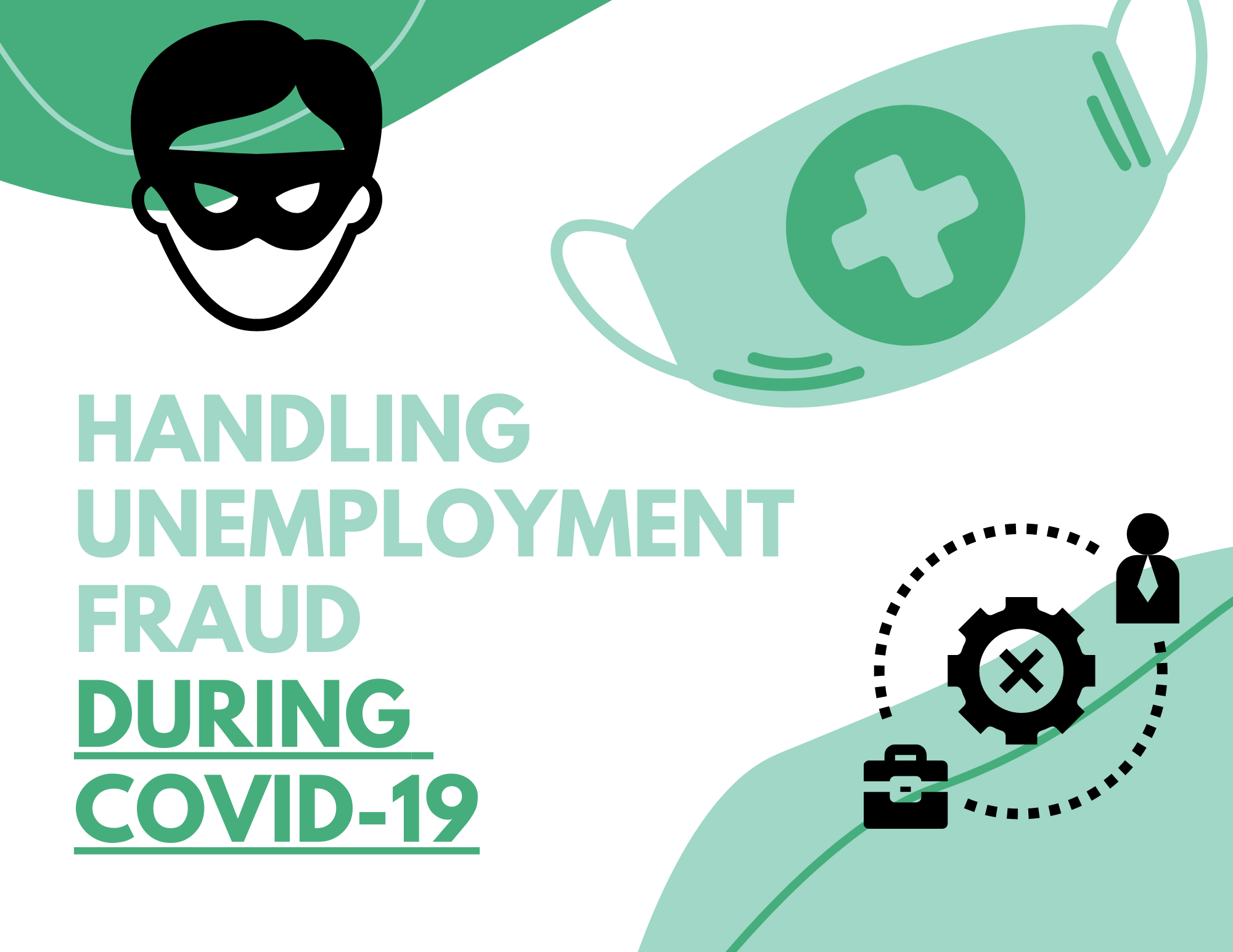Unemployment fraud has become a rampant problem all across the country during COVID-19. State unemployment agencies, such as the Illinois Department of Employment Security, have processed huge numbers of claims using antiquated systems and inadequate controls.
This blog post provides some important information that you should know. It includes instructions for both the employer and the affected employee in case a fraudulent claim is filed.
In Illinois, IDES (Illinois Department of Employment Security) is the agency that receives unemployment claims, validates them against employer reported data, and processes benefit payments to eligible employees. During the pandemic there has been extraordinary pressure on the agency to process claims quickly, but reduced scrutiny and inadequate controls have led to widespread fraud.
According to IDES records, the agency received 14,000 identity theft claims in five months; compared to 651 fraud reports during the same time last year. Employees report IDES debit cards showing up in their mailboxes, letters arriving for deceased spouses, and claims filed on behalf of children who have never worked. This is a problem not only in Illinois, but in states across the country. Arizona says it’s investigating up to 2 million fraudulent claims. Colorado ruled 75 percent of applications to be fraudulent in a one-month period. California has uncovered schemes involving identity theft, the dark web, and possibly an international crime ring.
It was reported by NBC 5 Chicago that “Illinois Attorney General [Kwame Raoul] Received a Fraudulent Unemployment Card.” In addition, CBS 2 Chicago reported the “Unemployment Fraud Claims Soar 2000% for Illinois Department of Employment Security.” And finally, on a national level, it was reported that “Widespread Unemployment Fraud is Overwhelming State Systems.”
What does this mean for Employers?
Unemployment works like insurance. In most cases, employers pay into a fund maintained by their respective states based on their assigned tax rate. Claims are paid based on employee eligibility regardless of the amount of dollars paid in by the employer. However, in Illinois, the assigned tax rate is based on the dollar amount of claims paid on behalf of the employer in the prior year as a proportion of total payroll. Therefore, the more claims paid, the higher the tax rate, so fraudulent claims lead to increased unemployment taxes. Based on current minimum and maximum tax rates, the difference could be ten-fold.
What action should an EMPLOYER take?
Employers receive a Notice of Claim when a claim is filed (legitimately or not). If the employer receives this notice and the employee is still employed, they should protest the claim following the state’s process and use the opportunity to advise IDES that they suspect that the claim is fraudulent. In addition, the employer should immediately notify the employee that they suspect a fraudulent claim has been filed in their name.
What action should an EMPLOYEE take?
Receipt of a fraudulent unemployment claim by the employer, or unwarranted notification of benefits to an employee who hasn’t filed, indicate that identity theft has likely taken place. Multiple actions should be taken by the employee as soon as possible:
- DO NOT cash any checks or use any debit cards received
- Contact IDES (or respective state unemployment agency) to notify them of suspected fraud:
Submit online: click here OR
Call: (800) 814-0513 - Contact the Illinois Attorney General’s Identity Theft Hotline
Call: (866) 999-5630 - Contact their Identity Theft provider (such as LifeLock, Experian, Identity Guard, etc.)
As an additional precaution: - Place a Credit/Security Freeze on your credit report.
- Contact the Federal Trade Commission for additional information and guidance
Conclusion:
This is a very serious issue that deserves your attention to protect the company’s interests as well as the employee. If you need assistance communicating this information to your employees, please contact your CGO HR Manager or your CGO HR Advisor.
For more information about this topic or others Human Resource issues impacting your business, please contact Sandra Teague at STeague@GoCGO.com.

This blog is not intended to be exhaustive nor should any discussion or opinions be construed as legal advice.






